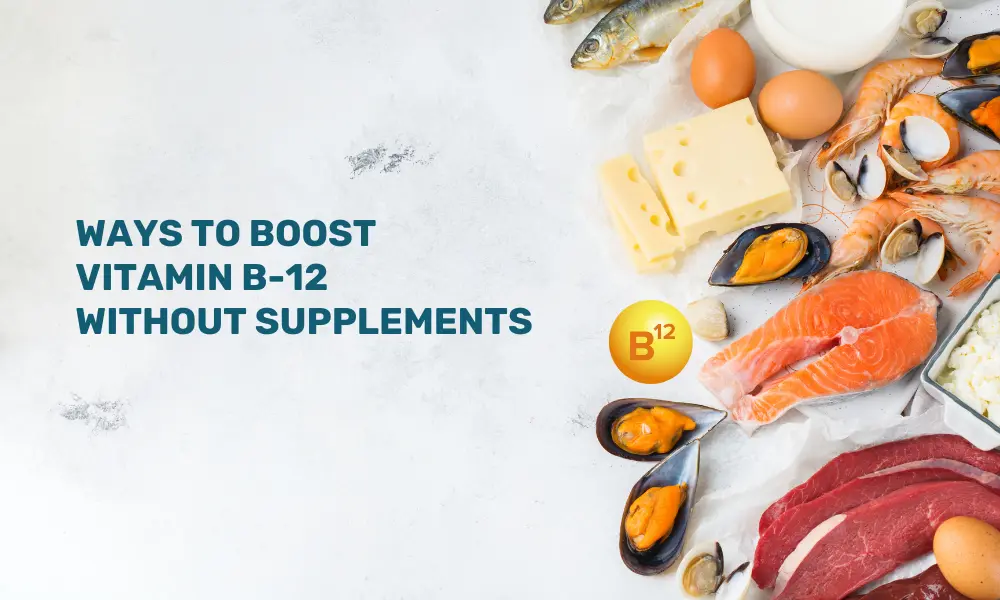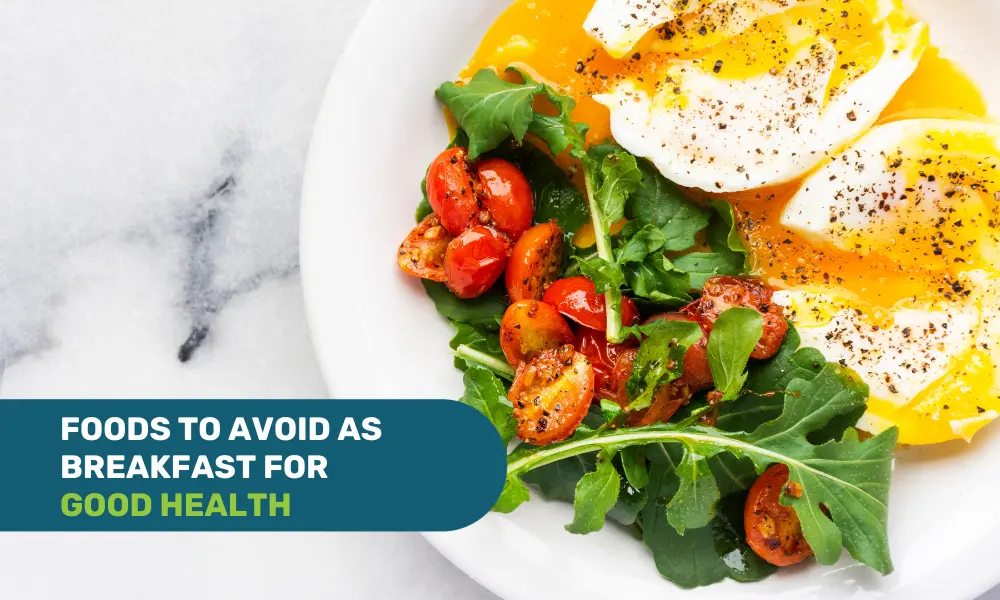Cobalamin, or vitamin B12, is akin to the hidden spark plug that gets our metabolism revved up. It assists us in converting the food we consume into fuel that we can burn, maintains our nerves healthy, and is essential for producing red blood cells. Even if you consume well, it can make you feel tired, foggy, and lethargic at low levels.
Our in-house expert, Dt. Aparna Pandey, MSC in Nutrition and Dietetics, shares how one can naturally boost their B12 levels by making some subtle, smart changes to their diet and lifestyle. Here’s how.
1. Choose foods that are rich in B12 from animals
B12 is primarily found in animal-based food sources, so if you are already eating them, you are already there.
Include:
-
Lamb, chicken kidney, and liver are among the finest natural sources of such nutrients.
-
Seafoods and fish like mackerel, sardines, tuna, and salmon have B12 along with omega-3s.
-
Chicken breast and turkey are among the lean meats and poultry.
-
Eggs, particularly the yolks.
These foods give you B12 in a highly bioavailable form that your body can easily use, which supports metabolism and energy production.
2. Incorporate Fermented Dairy into Your Diet
It occurs naturally in milk, curd, paneer, and cheese. Fermentation of these foods could be beneficial to the gut, which could lead to better absorption of B12.
Select:
-
Preparing curd at home
-
Moderate consumption of paneer
-
Aged cheeses, such as cheddar or Swiss
This is particularly beneficial if you have sensitive digestion as a healthy gut will enable your body to absorb the B12 you consume more efficiently.
3. Raise Your Stomach Acid Levels
Something you might not know: your body relies on proper stomach acid in order to free B12 from food you eat. Without proper stomach acid, which is relatively common in individuals with acid reflux, the elderly, or those who use antacids, it can significantly disrupt absorption. Try having a sip of lemon water or a splash of apple cider vinegar with meals to get your digestion going in a healthy manner. Include ginger, cumin (jeera), and carom seeds (ajwain) in foods they are better at stimulating the secretion of stomach acid and digestion of nutrients.
When your digestion is under control, your body can use B12 to the maximum, which
subsequently ensures a healthy metabolism and sustains your energy levels.
4. Couple B12 Food with Folate and B6
B12 is not used in isolation; it works in conjunction with folate (B9) and vitamin B6 in a process of utmost importance called the methylation cycle. This cycle is essential when discussing the repair of DNA, the creation of neurotransmitters, and the regulation of energy metabolism.
Folate occurs in vegetables such as spinach, methi (fenugreek), chana (chickpeas), moong dal (mung beans), and beetroot. For B6, take bananas, potatoes, chicken, and sunflower seeds. Once the nutrients are in balance, your body will be better able to utilize B12.
5. Don’t Forget Fortified Foods
If you are vegan or vegetarian, it can be somewhat complicated to consume sufficient B12 through food. That is where fortified foods become the answer to food that has been fortified with B12.
These consist of:
-
Fortified plant milks (e.g., soy, almond, or oat)
-
Fortified breakfast cereals (just be sure to select low-sugar varieties)
These can be used to supplement nutritional deficiencies without relying solely on supplements, provided you incorporate them into your diet on a regular basis.
6. Keep Your Gut in Check
Your gut bacteria recycle and produce B12, so it’s essential to maintain a good balance. Highlight eating more prebiotic foods like garlic, onions, and oats. Don’t forget to add probiotics to your diet, such as yogurt, kefir, or fermented vegetables. Limit your intake of excessive alcohol also processed and fried foods, as they can disrupt your gut flora. A healthy gut will always give better nutrient absorption and smoother metabolism!
7. Cook Smart
B12 does not prefer heat that much and can be lost very easily if food is overcooked too much. For instance, if you overboil milk, you might end up losing more B12 than you started out with. Some tips to make sure that the vitamin isn’t lost:
-
Opt for steaming instead of boiling for ages.
-
Brown meat on medium heat instead of burning it.
-
Incorporate dairy towards the end of your cooking period.
These small changes can prevent you from losing the B12 naturally present in your food.
The Bottomline:
Increasing your B12 levels naturally is all about eating lots of the right foods, also ensuring that your body can utilize and absorb it properly. By combining B12 foods with good digestion, a healthy gut, and healthy cooking methods, you can get all the benefits of a higher metabolism, increased energy levels, and general well-being without having to reach for a supplement. Think of it as fueling your body engine with premium fuel after you light the fire, your metabolism will reward you with steady energy, better focus, and a healthier body. For more such nutrition related tips – CLICK HERE!
Disclaimer: This article is meant for informational purposes only and must not be considered a substitute for professional advice.





